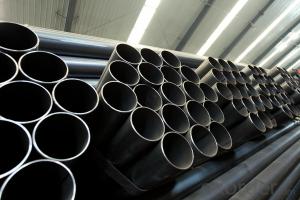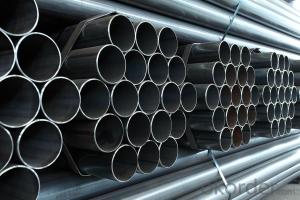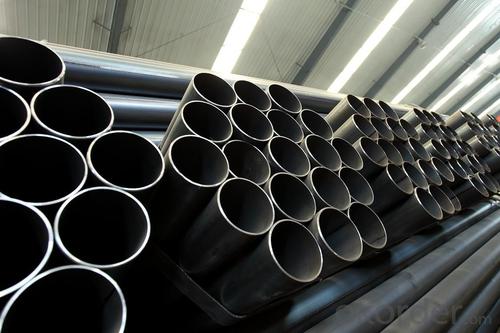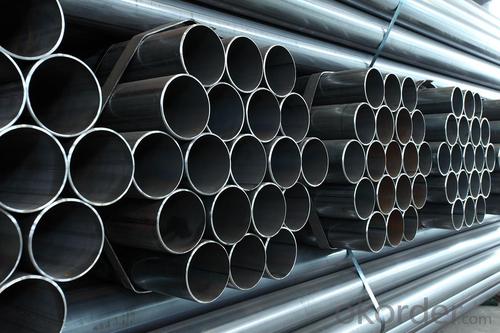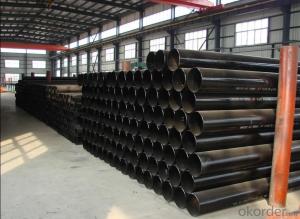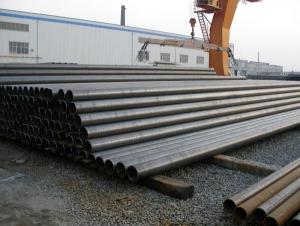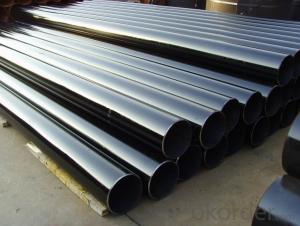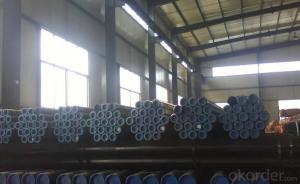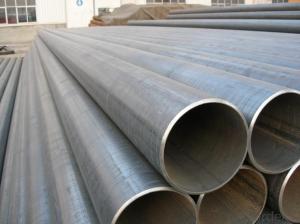Oil and gas erw line pipes API 5L
- Loading Port:
- China Main Port
- Payment Terms:
- TT OR LC
- Min Order Qty:
- -
- Supply Capability:
- -
OKorder Service Pledge
OKorder Financial Service
You Might Also Like
Product | BEST ERW CARBON STEEL PIPE API 5L GR.B | |
Specification | Section shape: round | |
Thickness: 4mm-16mm | ||
Outer diameter: 219mm-2020mm | ||
Standard | ASTM A252, BS1387,GB3091,ASTMA53, B36.10, BS EN1029, API 5L, GB/T9711 etc | |
Material | Q195, Q235, Q345; ASTM A53 GrA,GrB; STKM11,ST37,ST52, 16Mn,etc. | |
Fabrication | plain ends pipe,cutting threading, beveled, 3PE steel pipe, black and color painting, anti-rusting oilsteel pipe, varnish paintingsteel pipe, zinc-coating steel pipe, steel stamp, drilling, diameter reducing pipe etc. | |
Surface Treatment | 1. 3PE | |
2. PVC,black and color painting | ||
3. Transparent oil,anti-rust oil | ||
4. According to clients requirement | ||
Package | 1. Bundle | |
2. Bulk | ||
3. Plastic bags ,etc | ||
Min order | 10 tons, more quantity price will be lower | |
Payment terms | T/T, L/C at sight, western union etc. | |
Deliver time | Within 7-30 days after deposit, ASAP | |
Application | Construction,machine structure pipe, Agriculture equipment pipe, Water and gas pipe, Greenhouse pipe, Scaffolding pipe, Building material tube, Furniture tube, Low pressure fluid tube, Oil pipe, etc | |
Others | We can do special orders as customer’s requests. | |
We also can provide all kinds of steel hollow pipes. | ||
All the production process are made under the ISO9001:2008 strictly | ||
Business type | Manufacture and exporter |
- Q: How are steel pipes used in the construction of wastewater treatment plants?
- Steel pipes are used extensively in the construction of wastewater treatment plants for various purposes. They are used for the transportation of wastewater from one unit to another, as well as for the distribution of treated water to different areas. Steel pipes are also used in the construction of the main water supply and drainage systems within the plants. Additionally, they are utilized for the installation of pumps, valves, and other equipment required for the treatment process. The durability and strength of steel pipes make them an ideal choice for the demanding and corrosive environment of wastewater treatment plants.
- Q: What is the difference between hot-rolled and cold-rolled steel pipes?
- The main difference between hot-rolled and cold-rolled steel pipes lies in the manufacturing process. Hot-rolled steel pipes are produced at high temperatures, which results in a rougher surface and less precise dimensions. On the other hand, cold-rolled steel pipes are manufactured at lower temperatures, leading to a smoother surface finish and more accurate measurements. Additionally, the hot-rolling process allows for a wider range of steel grades and sizes, while cold-rolled pipes are generally limited in terms of thickness and diameter.
- Q: Seamless steel tube 89X4 meters, how heavy?
- According to the theory, each meter is 8.3844 kilograms. If you want to be precise, you'll lose your own weight.
- Q: What does the diameter of a steel pipe project mean?
- Nominal surface meaning can be understood as a public address. It's as if everyone agreed to call something as a "devil", and he was the devil.Don't be confused by the numbers behind the nominal diameter. For example, DN50, this 50 is really close to the outer diameter or inside diameter of the steel tube, but DN50 is only a general model of the caliber of the national standard.
- Q: Which is better, galvanized steel pipe or stainless steel?
- In rural and urban areas, it is often necessary to wash them in order to keep them in the open. In the heavily polluted industrial and coastal areas, the surface can be very dirty and even rust. But to obtain the aesthetic effect of outdoor environment, it is necessary to use nickel stainless steel. Therefore, 304 stainless steel is widely used in curtain walls, side walls, roofs and other building applications, but in corrosive industrial or marine atmospheres, it is better to use 316 stainless steel. There are several design criteria including 304 and 316 stainless steel.
- Q: What are the advantages of using steel pipes in plumbing systems?
- There are several advantages of using steel pipes in plumbing systems. Firstly, steel pipes are highly durable and have a long lifespan, making them a reliable choice for plumbing installations. They are resistant to corrosion, rust, and other forms of damage, ensuring the integrity of the plumbing system over time. Additionally, steel pipes have a high tensile strength, allowing them to withstand high pressure and heavy loads without deformation or leakage. They also have excellent heat resistance, making them suitable for hot water and steam applications. Lastly, steel pipes offer a smooth inner surface, minimizing friction and maintaining a consistent flow rate, which is crucial for efficient water distribution and drainage in plumbing systems.
- Q: Can steel pipes be used for culvert applications?
- Yes, steel pipes can be used for culvert applications. Steel pipes are commonly used for culverts due to their durability, strength, and resistance to corrosion. They can withstand heavy loads and are able to handle high traffic volumes and large water flows. Additionally, steel pipes can be easily manufactured in various sizes and shapes to suit specific culvert requirements. Their longevity and low maintenance needs make them a cost-effective choice for culvert applications.
- Q: Can steel pipes be used for high-temperature applications?
- Yes, steel pipes can be used for high-temperature applications. Steel is a durable and robust material that can withstand high temperatures without deformation or structural failure. It has excellent heat resistance properties, making it suitable for various industrial processes, such as steam lines, power plants, and oil refineries, where high temperatures are involved. The use of specifically designed high-temperature steel alloys further enhances their performance in extreme heat conditions.
- Q: How are steel pipes used in the construction industry?
- Steel pipes are commonly used in the construction industry for various purposes such as transporting fluids, structural support, and underground installations. They are utilized in plumbing systems, HVAC systems, and for conveying water, oil, and gas. Additionally, steel pipes are employed in the construction of high-rise buildings, bridges, and other infrastructure projects due to their durability, strength, and resistance to corrosion.
- Q: What are the different types of steel pipe supports for seismic applications?
- Some of the different types of steel pipe supports for seismic applications include sway braces, rigid braces, snubbers, and spring hangers.
Send your message to us
Oil and gas erw line pipes API 5L
- Loading Port:
- China Main Port
- Payment Terms:
- TT OR LC
- Min Order Qty:
- -
- Supply Capability:
- -
OKorder Service Pledge
OKorder Financial Service
Similar products
Hot products
Hot Searches
Related keywords
